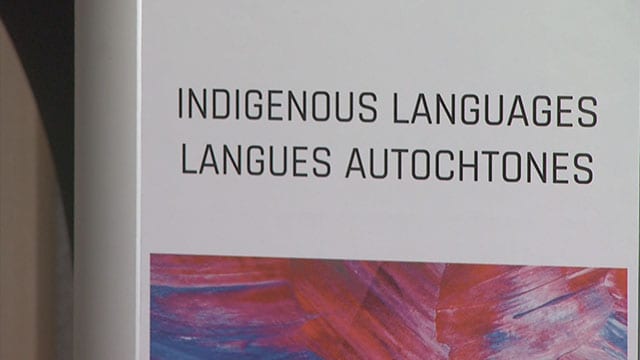
Over the next two years, Quebec-based Indigenous language and culture programs will receive a $8.7 million boost from the Canadian government, Pablo Rodriguez, minister of Canadian heritage and multiculturalism, announced Monday.
“Indigenous languages are an integral part of our country’s identity and play an important role in sharing culture,” Rodriguez said in a statement. “Most Indigenous languages in Canada are considered endangered, and we recognize the importance of preserving them.”
According to Rodriguez, the government allocated funding to programs whose mandate “[keeps] with the spirit of the Indigenous Languages Act,” legislation which came into effect earlier this summer after two years of consultation and development with Indigenous organizations.
This year’s federal budget committed $333.7 million over five years – starting in 2019 – to support implementation of the act.
The funding, according to a press release, will support 48 community-based projects that include “the promotion of Indigenous cultural heritage, language camps, classes, immersion programs,” as well as distributable resources – like translator tools and children’s books – and other unspecified educational material.
Rodriguez and constituents also project that the financial boost will allow for the creation and maintenance of “culturally relevant” radio and television programming and mobile applications.
In November 2018 and July 2019, the government provided $691,482 to three community-based projects in Montreal, Kahnawake, and the Gaspe.
According to UNESCO – who declared 2019 the year of Indigenous languages – three quarters of the 90 Indigenous languages in Canada are considered ‘endangered.’
“Indigenous languages are an integral part of Indigenous identity and Canada’s cultural identity,” Marc Miller, parliamentary secretary to the minister of Crown-Indigenous Relations – also a student of the Mohawk language, Kanien’keha – explained.
“We are pleased to support the efforts of these Quebec organizations who are working to preserve and promote Indigenous languages and culture,” Miller added.
UNESCO data indicates that first-language fluency among Indigenous peoples fell from 21 per cent to 15.6 percent over 10 years, between 2006 and 2016.










